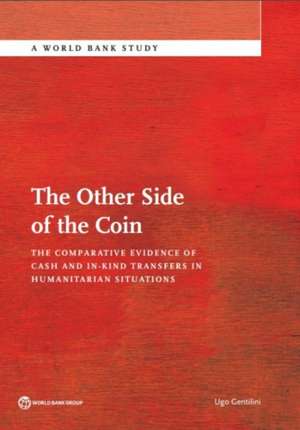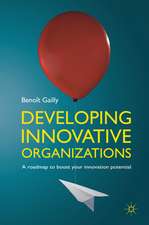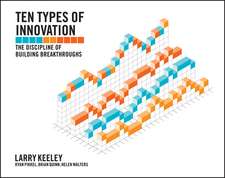The Other Side of the Coin: World Bank Studies
Autor Ugo Gentilinien Limba Engleză Paperback – 29 dec 2016
Over 60 million people are currently displaced due to conflict or violence, and about 140 million are exposed to natural disasters. As part of humanitarian responses to those affected populations, growing attention is paid to cash transfers as a form of assistance. Cash is being strongly advocated by several actors, and for good reasons: they have the potential to provide choice, empower people, and spark economic multipliers. But what is their comparative performance relative to in-kind transfers? Are there objectives for which there are particular evidence gaps? And what should be considered when choosing between those forms of assistance? This paper is one of the first reviews examining those questions across humanitarian sectors and in relation to multiple forms of assistance, including cash, vouchers, and in-kind assistance (food and non-food). These were assessed based on solid impact evaluations and through the lens of food security, nutrition, livelihoods, health, education, and shelter objectives. The paper finds that there is large variance in the availability of comparative evidence across sectors. This ranges from areas where evidence is substantial (i.e., food security) to realms where it is limited (i.e., nutrition) or where not a single comparative evaluation was available (i.e., health, education, and shelter). Where evidence is substantial, data shows that the effectiveness of cash and in-kind transfers is similar on average. In terms of costs, cash is generally more efficient to delivery. However, overall costs would hinge on the scale of interventions, crisis context, procurement practices, and a range of hidden costs . In other words, the appropriateness of transfers cannot be predetermined and should emerge from response analysis that considers program objectives, the level of market functionality, predicted cost-effectiveness, implementation capacity, the management of key risks such as on protection and gender, political economy, beneficiary preferences, and resource availability. Finally, it seems possible (and necessary) to reconcile humanitarian imperatives with solid research to inform decision-making, especially on dimensions beyond food security."
Din seria World Bank Studies
-
 Preț: 228.29 lei
Preț: 228.29 lei -
 Preț: 219.20 lei
Preț: 219.20 lei -
 Preț: 230.04 lei
Preț: 230.04 lei -
 Preț: 229.48 lei
Preț: 229.48 lei -
 Preț: 190.63 lei
Preț: 190.63 lei -
 Preț: 233.13 lei
Preț: 233.13 lei -
 Preț: 234.50 lei
Preț: 234.50 lei -
 Preț: 200.52 lei
Preț: 200.52 lei - 5%
 Preț: 242.04 lei
Preț: 242.04 lei -
 Preț: 200.52 lei
Preț: 200.52 lei -
 Preț: 233.51 lei
Preț: 233.51 lei -
 Preț: 232.54 lei
Preț: 232.54 lei -
 Preț: 192.36 lei
Preț: 192.36 lei -
 Preț: 229.66 lei
Preț: 229.66 lei -
 Preț: 205.91 lei
Preț: 205.91 lei -
 Preț: 230.04 lei
Preț: 230.04 lei -
 Preț: 230.80 lei
Preț: 230.80 lei -
 Preț: 227.37 lei
Preț: 227.37 lei -
 Preț: 201.11 lei
Preț: 201.11 lei -
 Preț: 259.22 lei
Preț: 259.22 lei -
 Preț: 233.13 lei
Preț: 233.13 lei - 5%
 Preț: 224.22 lei
Preț: 224.22 lei -
 Preț: 204.37 lei
Preț: 204.37 lei -
 Preț: 196.01 lei
Preț: 196.01 lei -
 Preț: 214.18 lei
Preț: 214.18 lei -
 Preț: 229.66 lei
Preț: 229.66 lei -
 Preț: 222.63 lei
Preț: 222.63 lei -
 Preț: 192.36 lei
Preț: 192.36 lei -
 Preț: 191.60 lei
Preț: 191.60 lei -
 Preț: 204.98 lei
Preț: 204.98 lei -
 Preț: 230.04 lei
Preț: 230.04 lei -
 Preț: 190.63 lei
Preț: 190.63 lei -
 Preț: 232.00 lei
Preț: 232.00 lei -
 Preț: 207.86 lei
Preț: 207.86 lei -
 Preț: 191.76 lei
Preț: 191.76 lei -
 Preț: 208.62 lei
Preț: 208.62 lei -
 Preț: 219.20 lei
Preț: 219.20 lei -
 Preț: 168.49 lei
Preț: 168.49 lei -
 Preț: 193.13 lei
Preț: 193.13 lei -
 Preț: 234.28 lei
Preț: 234.28 lei -
 Preț: 262.67 lei
Preț: 262.67 lei -
 Preț: 197.36 lei
Preț: 197.36 lei -
 Preț: 230.24 lei
Preț: 230.24 lei -
 Preț: 232.54 lei
Preț: 232.54 lei -
 Preț: 206.28 lei
Preț: 206.28 lei -
 Preț: 176.37 lei
Preț: 176.37 lei -
 Preț: 171.37 lei
Preț: 171.37 lei -
 Preț: 169.08 lei
Preț: 169.08 lei -
 Preț: 232.00 lei
Preț: 232.00 lei -
 Preț: 229.10 lei
Preț: 229.10 lei
Preț: 215.72 lei
Nou
41.28€ • 44.83$ • 34.68£
Carte tipărită la comandă
Livrare economică 22 aprilie-06 mai
Specificații
ISBN-10: 1464809100
Pagini: 66
Dimensiuni: 178 x 250 x 4 mm
Greutate: 0.14 kg
Editura: World Bank Publications
Seria World Bank Studies













